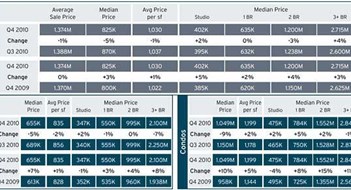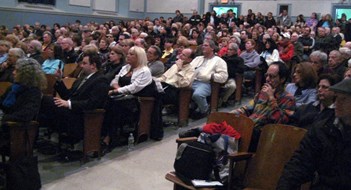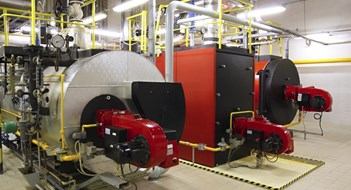It’s time to turn our attention to The Cooperator’s 2011 Co-op & Condo Expo, a must-attend event for the tri-state area’s property managers, board members, real estate professionals, shareholders and unit owners. Now in its 24t…


It’s time to turn our attention to The Cooperator’s 2011 Co-op & Condo Expo, a must-attend event for the tri-state area’s property managers, board members, real estate professionals, shareholders and unit owners. Now in its 24t…

The real estate market in New York City isn’t what it was in the recent past—a fact that troubled many brokers, but which for buyers was a good thing. Across the market, prices are still well below their height of a few years ago, and s…

Employment figures may be up, and the economy may be showing signs of life after the long winter of the Great Recession, but the real estate market is still shaking off the chill. New York City in 2010 saw few building permits issued, …

Buying an apartment in New York can be a smooth process—or as smooth as smooth can be when the number of attorneys present at the closing are enough to field a N.Y. Urban Professionals Basketball League team—or it can be a harrowing roll…

For many, the idea of getting a new mortgage on a home or apartment is enough to cause even the heartiest soul to break out in a light sweat. Now imagine refinancing a mortgage for a multimillion-dollar co-op building, and the light sw…

When co-op developments throughout Eastern Queens received their assessment valuations this past January—the values upon which property taxes are based— many were in for a rude shock. According to Bob Friedrich, president of Gl…

Almost a century ago, if you lived in The Ansonia, a residential hotel on Manhattan’s Upper West Side, you had access to a variety of very interesting amenities, including a menagerie on the roof that included a huge flock of chickens a…

New York City’s Department of Buildings wields great influence over how structures in the city are built and maintained, presiding over everything from building inspections to permits, building codes and materials. While that area of go…

There’s nothing worse than dealing with someone who has let their power go to their head, and when you’re talking about a co-op or condo board member who starts to act above everyone in the building, huge problems can arise. J…

Unit owners attempting to sell their apartments may find that prospective purchasers are encountering difficulty in obtaining a mortgage if their property is not approved by Fannie Mae. When these unit owners have difficulty selling th…

From attorneys to contractors, every building has a list of various professionals to work with to keep things running smoothly. One of the most important of these professionals is the building’s accountant. One wrong calculation or miss…

When applying for co-op financing, our buyers and clients may be approved for a mortgage―but the co-op that they are buying into may not be. Since most lenders sell their notes to the Federal National Mortgage Association (F…

Was your building constructed after March 31, 1991? If the building you own has more than four units and was built after 1991, the property should have been constructed according to the accessibility guidelines of the Fair Housing Act …

Bedbugs are a fact of urban life, and a growing problem for residents in communal environments. As the bedbug epidemic mushrooms—1 in 15 New Yorkers had bedbugs in the last year, according to the New York City Department of Health—the l…

For years, Chelsea was a highly industrial fringe neighborhood, a commercial center on the west side of Manhattan filled with stables, railyards and rowhouses, but today it’s a popular place for restaurants, nightclubs, retail shopping …

If you are contemplating selling your home, you probably know that the residential real estate market in New York City has rebounded dramatically since last year. However, to ensure the most successful sale in any market, it’s important…

Two state laws make the illegality of a tenant’s use of rented premises a matter of considerable concern to property owners of all kinds, including cooperatives. One empowers local prosecutors to bring eviction proceedings against both …

On December 8, 2009, the City Council passed Local Law 84 as part of New York City’s Greener, Greater Buildings initiative. Article 309 of this law requires all residential and commercial buildings over 50,000 square feet and city build…

Building owners spend billions of dollars a year to construct and refurbish their properties, yet many are unaware of the hidden costs some contractors charge improperly. Building owners are often vulnerable to this kind of corruption …

Steam heating using both single- and two-pipe steam radiators will continue to dominate the heating of a majority of buildings in New York City well into the present century. But how do we determine if an apartment building is energy e…